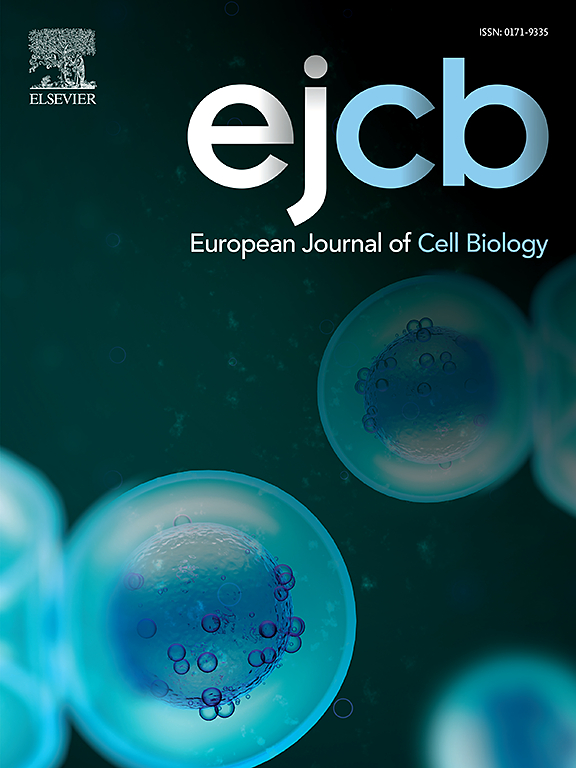Cryo-EM structures of cardiac muscle α-actin mutants M305L and A331P give insights into the structural mechanisms of hypertrophic cardiomyopathy
IF 4.3
3区 生物学
Q2 CELL BIOLOGY
引用次数: 0
Abstract
Cardiac muscle α-actin is a key protein of the thin filament in the muscle sarcomere that, together with myosin thick filaments, produce force and contraction important for normal heart function. Missense mutations in cardiac muscle α-actin can cause hypertrophic cardiomyopathy, a complex disorder of the heart characterized by hypercontractility at the molecular scale that leads to diverse clinical phenotypes. While the clinical aspects of hypertrophic cardiomyopathy have been extensively studied, the molecular mechanisms of missense mutations in cardiac muscle α-actin that cause the disease remain largely elusive. Here we used cryo-electron microscopy to reveal the structures of hypertrophic cardiomyopathy-associated actin mutations M305L and A331P in the filamentous state. We show that the mutations have subtle impacts on the overall architecture of the actin filament with mutation-specific changes in the nucleotide binding cleft active site, interprotomer interfaces, and local changes around the mutation site. This suggests that structural changes induced by M305L and A331P have implications for the positioning of the thin filament protein tropomyosin and the interaction with myosin motors. Overall, this study supports a structural model whereby altered interactions between thick and thin filament proteins contribute to disease mechanisms in hypertrophic cardiomyopathy.
心肌α-肌动蛋白突变体M305L和A331P的低温电子显微镜结构揭示了肥厚型心肌病的结构机制。
心肌α-肌动蛋白是肌肉肌节中细丝的一种关键蛋白质,它与肌球蛋白粗丝一起产生对正常心脏功能很重要的力量和收缩。心肌α-肌动蛋白的错义突变可导致肥厚型心肌病,这是一种复杂的心脏疾病,其特点是分子尺度上的过度收缩,导致不同的临床表型。虽然肥厚型心肌病的临床表现已被广泛研究,但心肌α-肌动蛋白的错义突变导致该病的分子机制在很大程度上仍然难以捉摸。在这里,我们利用低温电子显微镜揭示了肥厚型心肌病相关肌动蛋白突变 M305L 和 A331P 在丝状状态下的结构。我们发现,这两种突变对肌动蛋白丝的整体结构有着微妙的影响,核苷酸结合裂隙活性位点、原体间界面以及突变位点周围的局部都发生了突变特异性变化。这表明,M305L 和 A331P 诱导的结构变化对细丝蛋白肌球蛋白的定位以及与肌球蛋白马达的相互作用有影响。总之,这项研究支持一种结构模型,即粗丝蛋白和细丝蛋白之间相互作用的改变有助于肥厚型心肌病的发病机制。
本文章由计算机程序翻译,如有差异,请以英文原文为准。
求助全文
约1分钟内获得全文
求助全文
来源期刊

European journal of cell biology
生物-细胞生物学
CiteScore
7.30
自引率
1.50%
发文量
80
审稿时长
38 days
期刊介绍:
The European Journal of Cell Biology, a journal of experimental cell investigation, publishes reviews, original articles and short communications on the structure, function and macromolecular organization of cells and cell components. Contributions focusing on cellular dynamics, motility and differentiation, particularly if related to cellular biochemistry, molecular biology, immunology, neurobiology, and developmental biology are encouraged. Manuscripts describing significant technical advances are also welcome. In addition, papers dealing with biomedical issues of general interest to cell biologists will be published. Contributions addressing cell biological problems in prokaryotes and plants are also welcome.
 求助内容:
求助内容: 应助结果提醒方式:
应助结果提醒方式:


